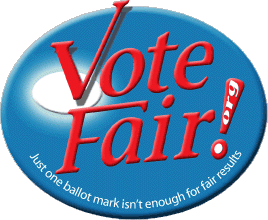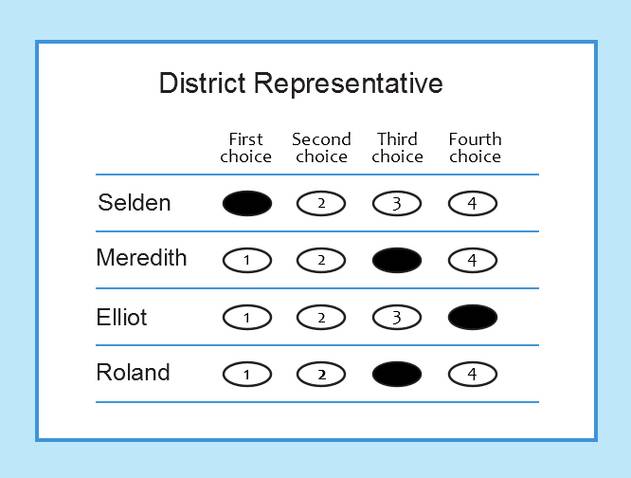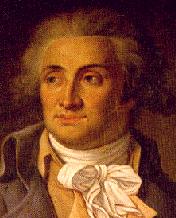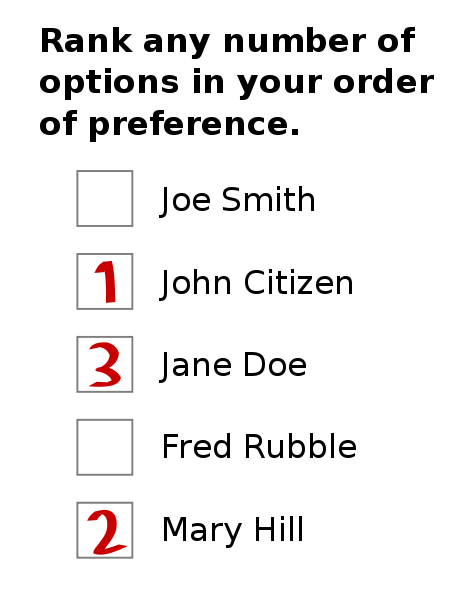
Election Method Reformer, DC Author and Activist Richard Fobes Discusses State of Election Method Reform in the US
by Adrian Tawfik
Over the course of a series of articles Democracy Chronicles is presenting the results of the fascinating interviews we have conducted with prominent signers of the group that published the ‘Declaration of Election-Method Reform Advocates’. The interviews will cover the opinions of a diverse group of election methodology experts from around the world. These interviews could not have been accomplished without the determined help of author and election method reform advocate Richard Fobes. In a small token of our appreciation for his efforts, we are publishing his interview here as the first of the series of interviews exclusively on Democracy Chronicles.
Richard Fobes, who has a degree in physics, became involved with election method reform when he realized, while writing his book, “The Creative Problem Solver’s Toolbox“, that most of the world’s problems can be solved, but the current voting methods used throughout the world are so primitive that citizens are unable to elect the problem-solving leaders they want. That insight motivated him to spend time over the last two decades developing and writing open-source software for a system of voting methods that he calls “VoteFair ranking.”
The core of the system is VoteFair popularity ranking, which virtually always identifies the same election winner as the Condorcet-Kemeny method, one of the methods supported by the “Declaration of Election-Method Reform Advocates.” At his VoteFair.org website, Fobes offers a free service of calculating VoteFair ranking results, and a number of organizations have used the service to elect their officers. At that site Fobes also hosts an American Idol poll that allows fans of the TV show to rank the show’s singers according to who is their favorite, who is their second favorite, and so on down to who they like the least, and the calculations reveal the overall ranking.
Based on the results, Fobes writes commentaries that anticipate and explain so-called “surprise” results in terms of important voting concepts, especially vote splitting, vote concentration, and strategic voting. Richard Fobes is also the author of the book “Ending The Hidden Unfairness In U.S. Elections.” Below, Mr. Fobes answers the questions of Democracy Chronicles’ Adrian Tawfik who recently conducted the interview online:
Election Method Reformer Richard Fobes
Democracy Chronicles: Briefly explain what characteristics you think are most important for a voting method to have?
Richard Fobes: To produce fair results, a voting method should look deeply into the voter preferences. The current approach of voters only being allowed to mark a single choice, and then using an overly simplistic counting method (plurality), is a huge failure to look beneath the surface of voter preferences. In contrast, I think a voter should be allowed to rank all the candidates from most preferred to least preferred, and the counting method should fully rank all the choices from most popular and second-most popular down to least popular. If a method correctly identifies the least-popular choice, then voters can better trust that the method also correctly identifies who deserves to win.
Democracy Chronicles: What do you think is the most important election reform needed where you live (either locally or nationally)? Why is this reform important?
Richard Fobes: I believe that the election reform that is most needed in the United States is to ban the use of single-mark ballots in Congressional elections, including primary elections. This ban would allow us, the majority of voters, to fill Congress with problem-solving leaders instead of special-interest puppets. This reform is more important than reforming Presidential elections because the job of the President is to enforce the laws that Congress writes, and because it would dramatically weaken Congressional lobbyists (who have far more power than Presidential advisers).
Democracy Chronicles: What is your opinion on other aspects of election reform such as reforming money’s role in politics or redistricting (particularly in the US but very interested as well concerning election reforms internationally)?
Richard Fobes: Banning single-mark ballots in Congressional elections would eliminate vote splitting, which is a weakness of plurality counting that the biggest campaign contributors have learned to exploit in ways that involve money. Using better ballots and better counting methods would enable a problem-solving leader to more easily win a Congressional (primary or general) election running against a money-backed incumbent, even if the money-backed incumbent greatly outspent the reform-minded candidate.
I believe that the solution to the redistricting problem in the United States (and similarly in each state) is to slightly more than double the size of Congressional districts, and then fill each district’s second seat with the candidate who is most popular among the voters who are not well-represented by the winner of the first seat, which is what “VoteFair representation ranking” deeply calculates. In a typical such district, one Republican and one Democrat would win that district’s two seats, regardless of where the district boundaries are drawn.
Additionally a few “proportional” seats would be filled based on the voters’ party-preference information, with the candidate being selected by “VoteFair partial-proportional ranking.” This adjustment would compensate for any round-off errors that occur in filling the district-based seats, and would ensure that the majority of each state’s Congressional representatives are from the same political party as the state’s majority of voters. To the extent that the Republican Party and the Democratic Party continue to be excessively influenced by money instead of votes, third-party candidates would win the proportional seats, and that outcome would force the two main parties to adopt at least some of the reforms promoted by the most popular third parties.

Democracy Chronicles founder Adrian Tawfik conducted an exclusive interview series with an international group of election method proponents including prominent signers of the Declaration of Election-Method Reform Advocates. The best place to start off is the Democracy Chronicles introduction and then take a look at each of these interviews:
- Richard Fobes – Election Method Reformer Speaks With DC
- Aaron Hamlin – Interview With President of Center for Election Science
- Andrew Jennings – Redistricting, Vote Splitting and Honest Voting
- augustin – Writer Discusses Election Reform and New Website
- Michael Allen – Election Method Reformer Seeks Radical Changes
- Jameson Quinn – Election Expert Discusses Reform in US and Guatemala
- Michael Ossipoff – Democracy Chronicles Author Discusses Approval Voting
- Robert Bristow-Johnson – Expert Demands Reducing Money in Elections
Also see the DC Interview With Creator of Wooden Models of Voting Methods with artist Peter A. Taylor.


Leave a Reply